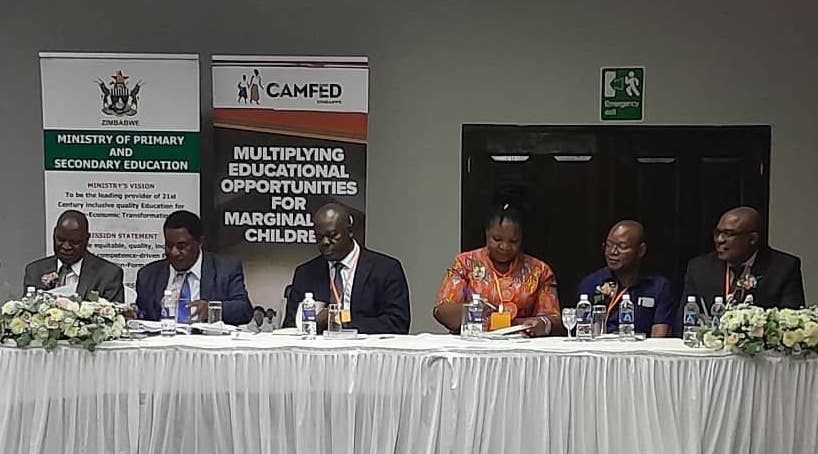|
Getting your Trinity Audio player ready...
|
Writes Hopewell Chibvongodze
Harare, March 6, 2024 – The Ministry of Primary and Secondary in partnership with CAMFED (Campaign for Female Education) on Wednesday launched a handbook to help learners adapt to climate changes currently affecting the world.
The Climate Education handbook was launched simultaneously with the one on guidance and counseling during the International Disaster and Risk Conference (IDRC) meeting in Harare.
Primary and Secondary Education (MoPSE) Minister, Torerayi Moyo, who spoke at the event, said the two books are practically oriented and fit in the heritage-based curriculum recently adopted by the country.
The climate handbook is designed to promote youth climate literacy and equip young people with the necessary knowledge and skills to take action on the effects of climate change and secure a climate-smart present and future.
The minister said the country reviewed the competence-based curriculum and adopted the heritage-based education which focuses on innovation where learners are encouraged to identify societal problems, research and find solutions to those challenges.
“According to this new curriculum, we want to encourage learners to be critical in analysis, to engage in collaborative research, and come up with some innovative patents which will, later on, be registered with the deeds office so that by the time they complete O-Level, one would have identified some competence or career,” he said.
Moyo said climate change is one of the biggest challenges facing Zimbabwe and the world and the Zimbabwe National Climate Change Strategy (2020) emphasized the importance of climate education.
On the Guidance and Counseling Teacher Support Manual, Moyo said it provides practical solutions to challenges faced by teachers and empowers them with life skills that enable them to survive in a dynamic society.
“The purpose of this manual is to create a whole school climate that takes teacher, child, and adolescent mental health needs seriously. Both of the materials align well with our curriculum, thereby creating a whole school climate that takes teacher, child, and adolescent mental health needs seriously,” said Moyo.
The IDRC meeting is regional and runs for two days and is being attended by delegates from Zambia, Tanzania, and Zimbabwe under the theme, ‘Engagement with Government partners in Zambia and Zimbabwe – moving from endorsement to integration in diverse contexts’.
The Minister said CAMFED is working towards the integration of the learner guide/peer educator programme into the government system in its quest to champion girls’ education and women’s empowerment.






